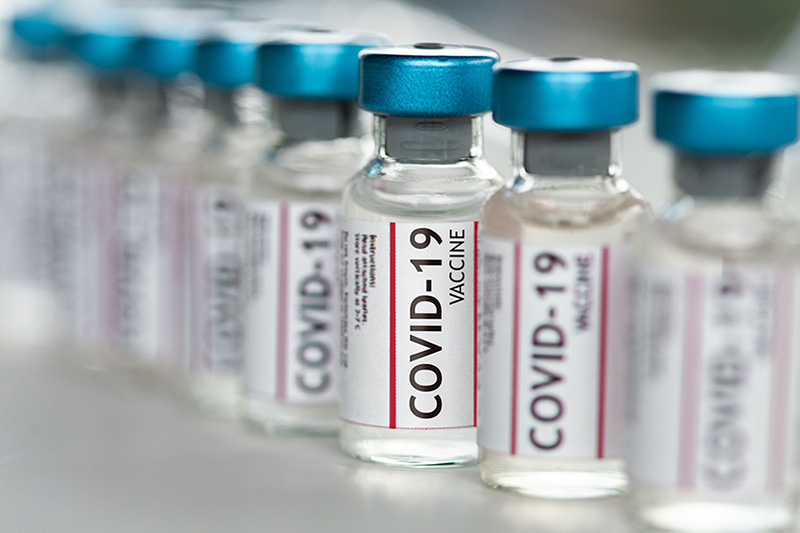What to expect when the first COVID-19 vaccine arrives

Drug companies are racing to get their COVID-19 vaccines to market in the hopes that there will be enough doses for anyone who wants the vaccine by summer. (iStock photo)
As COVID-19 cases soar to new records in the United States, hope is on the horizon as the nation’s first COVID-19 vaccine is about to begin distribution. The Pfizer vaccine, which preliminary data shows is 95% effective, will soon go to healthcare workers and later to those in assisted living facilities, who are most vulnerable to the disease.
Will this milestone mark the beginning of the end of the COVID-19 pandemic?
Health economist Charles Stoecker, an expert in vaccine policy with Tulane University School of Public Health and Tropical Medicine, spoke with Tulane’s On Good Authority podcast about the game-changing impact the first vaccines will have in the United States.
“We expect by the end of December, that the United States will have about 40 million doses of the vaccine,” said Stoecker, associate professor in the Department of Health Policy and Management. “Everybody needs two doses. So that's about 20 million people that can be vaccinated. I've seen estimates that there are about 20 million healthcare workers in the United States, so there’s just enough to vaccinate that population.”
Drug companies are racing to get their vaccines to market. The hope is that there will be enough doses for anyone who wants the vaccine by summer. However, the incredible speed of development — within a year since the coronavirus emerged — may undermine public trust in the science. A quarter of Americans said they would not get the vaccine and 27% said they weren’t sure, according to a recent Associated Press poll. A Gallup poll found 63% of people in the United States would take the vaccine.
Easing those doubts will be essential, as vaccination rates would need to top 70% to get the pandemic under control.
“It’s great news that the vaccines are so effective. We don't have to vaccinate that many more people than 70% to get 70% of the population immune,” Stoecker said. “How do we get there?”
He thinks that the public will become more confident as more people get the vaccine. Also, as COVID cases surge this winter, more people will be personally affected by the virus and its potentially deadly consequences.
“As coronavirus deaths mount, and as we don’t see serious long-term consequences of vaccine, people’s calculations are going to change,” Stoecker said in the podcast. “Currently, people are dying from coronavirus at about one per minute in the United States. In the time that I’ve taken to answer your question right now, there will have been a couple of additional deaths. More and more people are going to know someone close to them who’s died due to coronavirus. Their calculation will change. It’s possible that there may be some risks of taking the vaccine. It’s likely that that there are some short-term adverse events. You’re going to have to balance that with the risk of the disease itself.”
To hear Stoecker answer common questions about the five leading COVID-19 vaccines, what their rollout will look like and when he expects life to finally return to normal, listen to On Good Authority here.
